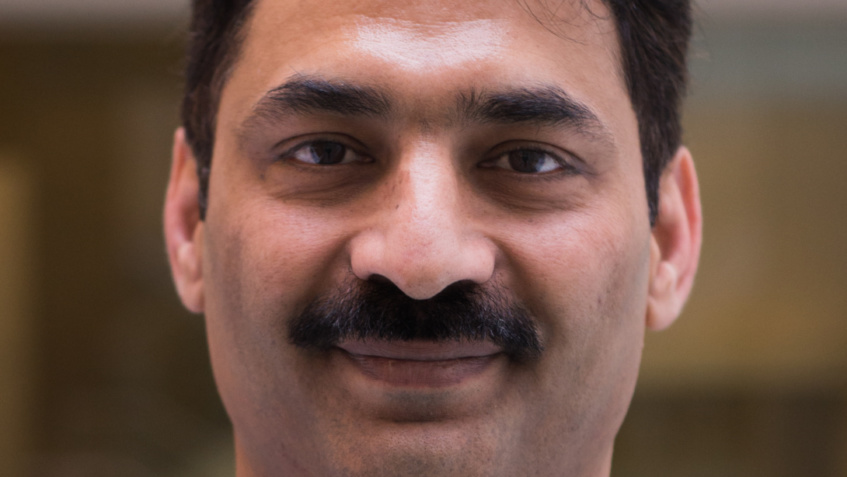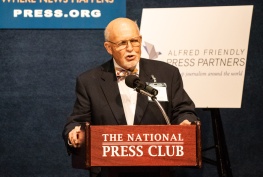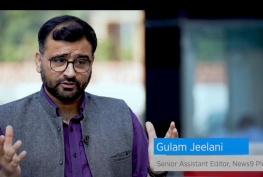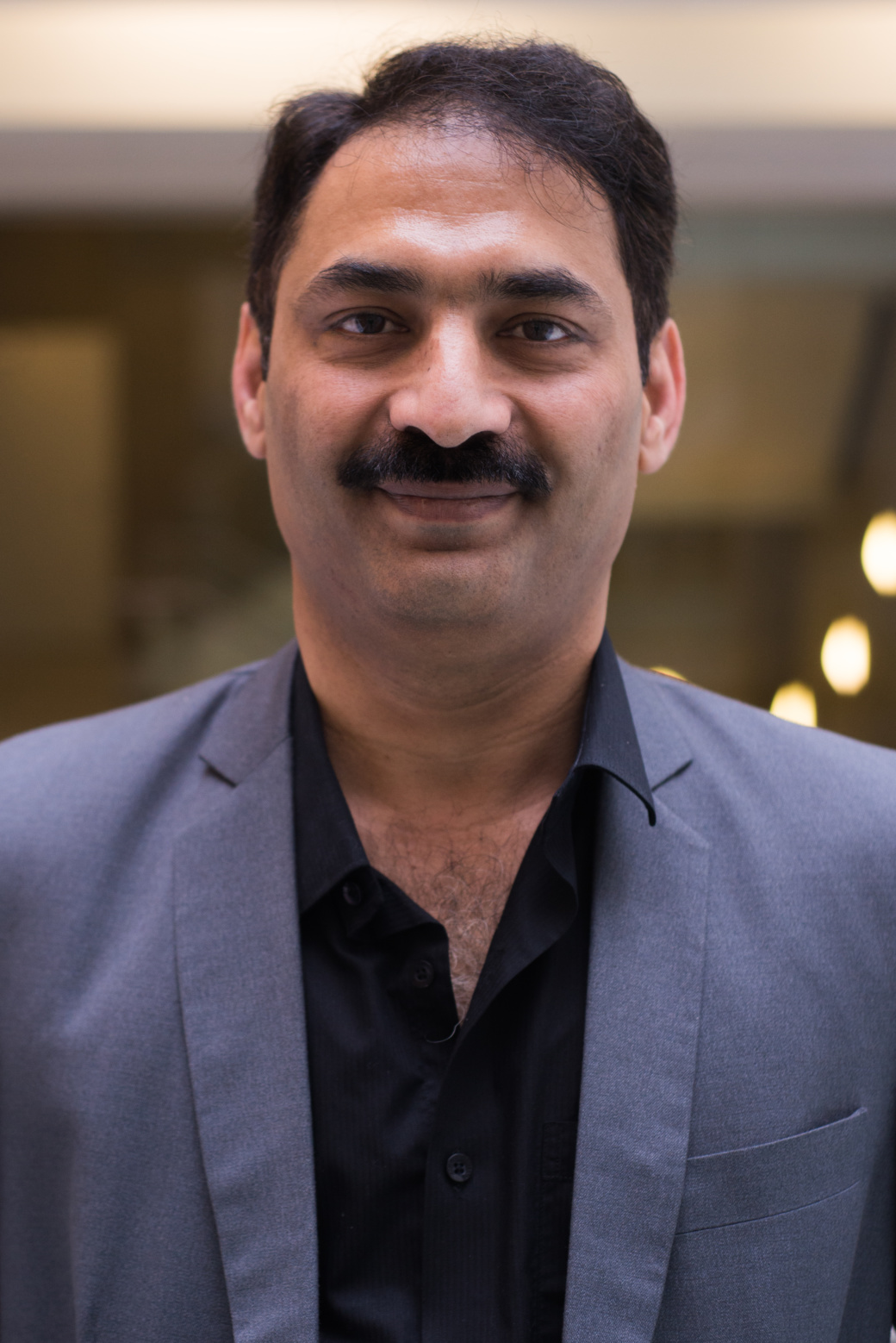
The thugs determined to silence Ahmad Noorani’s investigative reporting on Pakistan’s leadership began their campaign of intimidation with menacing text messages. Then they threw bricks and stones into one house he rented and then another when he moved. They brazenly eavesdropped and tried scaring him with trumped-up criminal charges. Then they threw bricks and stones into one house he rented and then another when he moved. They brazenly eavesdropped and tried scaring him with trumped-up criminal charges.
Eventually, they tried to beat him to death.
Finally, they got him fired and blacklisted.
Through it all, he has persisted.
Noorani is clear-eyed about the challenges and dangers facing him as he prepares to launch an investigative news portal focused on one of the world’s most dangerous places for independent journalists.
“Doing all this is not without cost,” Noorani acknowledges. “Every choice has its price.”
Noorani is on a six-month fellowship in a program based at the Missouri School of Journalism and run by Alfred Friendly Press Partners. The sponsors are New York-based Scholars At Risk Network, an international nonprofit that protects threatened scholars and has a new Practitioners at Risk program; and Protect Defenders EU, a nonprofit that assists defenders of human rights.
“I had never thought to be part of this club,” Noorani said. “Once there, I have never regretted what I did to get here.”
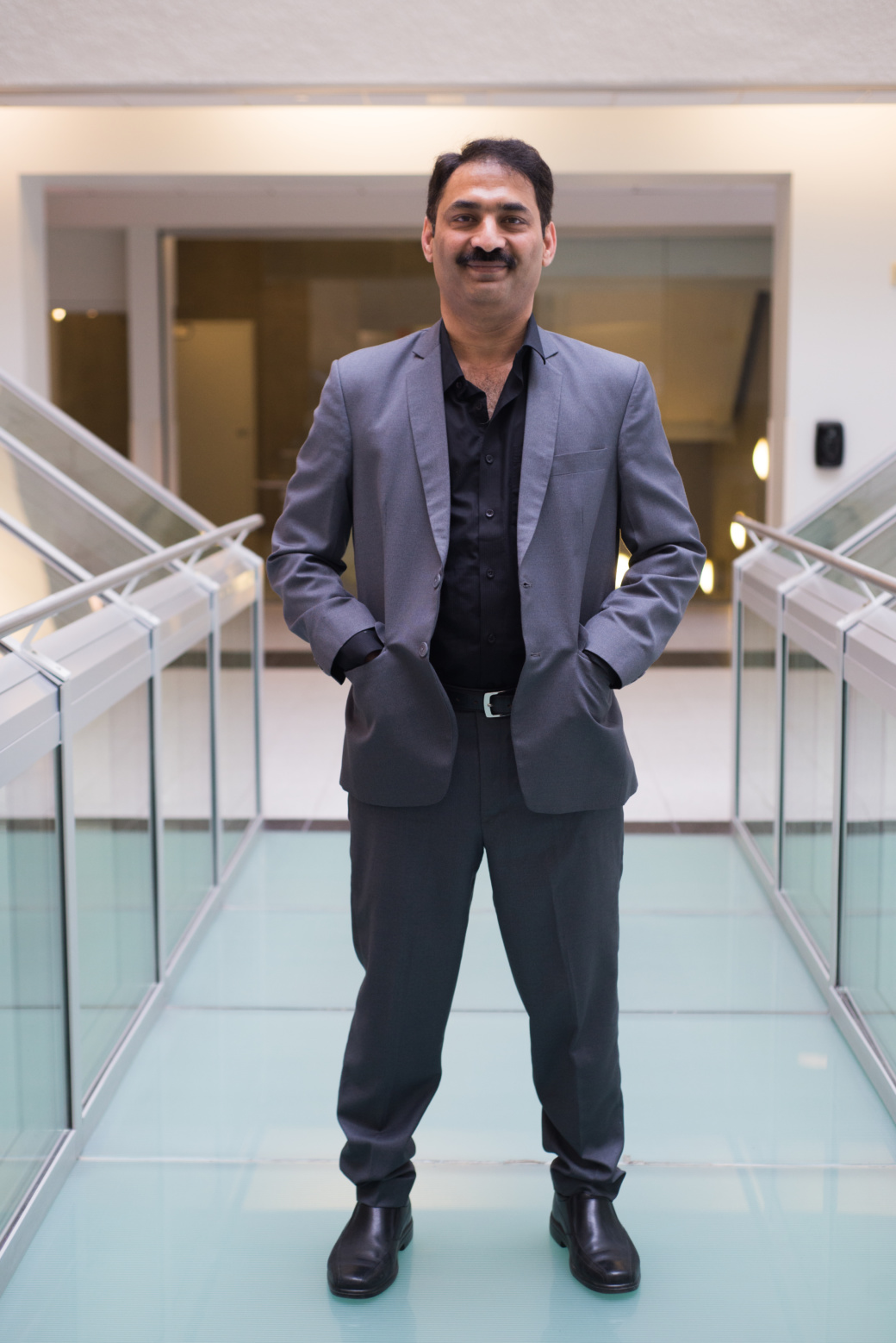
(Hillary Tan/Missourian)
Noorani worked the past 12 years for the investigative unit of The News International in Islamabad, one of Pakistan’s largest English-language newspapers and a publication of the country’s largest media group, Geo and Jang Group.
He always faced strict censorship and was repeatedly threatened and warned to stop reporting about the military’s dominance in civilian affairs and the unreported assets of leading politicians and their family members.
Freedom House, a nonprofit organization that monitors the state of freedom and democracy around the world, reports that Pakistan’s military “exerts enormous influence over security and other policy issues, intimidates the media, and enjoys impunity for indiscriminate or extralegal use of force.”
Since 1992, more than 60 journalists have been killed in Pakistan because of the work they were doing, according to the Committee to Protect Journalists. A recent report CPJ issued on the deteriorating press freedoms in Pakistan featured Noorani’s ordeal.
The pressure on Noorani intensified two years ago after he reported about military intelligence services’ involvement in controlling fallout from the Panama Papers exposé of secret investments in offshore companies. Noorani moved his family from Rawalpindi to Islamabad and deactivated his Twitter account.
But on an October afternoon in the capital, a gang of six motorcyclists stopped his car and beat him unconscious with heavy chains and iron knuckles.
“They wanted to kill me,” Noorani recalled. “I would have been dead had there not been some laborers working at a construction site nearby who pushed the attackers away and saved my life.”
Noorani, 41, spent four days in a hospital recovering from skull fractures and was unable to speak clearly for weeks.
The attack, and the photographs of Noorani in a hospital bed with his head wrapped in white gauze, stunned the journalism community in Pakistan. But no suspects were ever identified
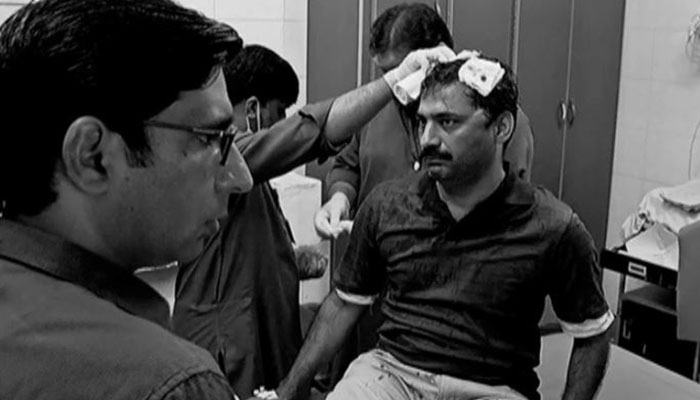
Then last year when Mohammad bin Salman was about to visit Pakistan, the army coerced news managers to order employees not to tweet anything about Saudi Arabia’s crown prince. Noorani was among the journalists who decided to change his personal Twitter picture to an image of Jamal Khashoggi to obliquely remind fellow citizens of his murder by bin Salman’s agents.
The army accused Noorani of instigating the protest, forced The News to fire him and compelled other news organizations not to hire him. So he decided to start an independent news website. And the threats continued.
In December, a military intelligence officer came at dusk to the home where Noorani was staying in secret, rang the bell and, when his mother came to the door, demanded that she get her son to come outside so they could take him to their station. After she repeatedly insisted he was not inside, and as his sister was videotaping the officer, he got back in the car and drove off. But they succeeded in terrifying the women, who pleaded with Noorani to somehow get out of harm’s way.
In January, former colleagues at The News nominated Noorani for the inaugural fellowship for at-risk investigative reporters. They included Umar Cheema, who was a 2008 Daniel Pearl Fellow in the Alfred Friendly fellowship program and, like Noorani, was attacked for his work.
Cheema in 2010 was kidnapped, stripped naked and tortured by attackers, who also shaved off his hair and eyebrows and videotaped him in humiliating positions.
Cheema’s attackers demanded that he stop writing articles critical of the government and to never speak of what had happened.
Instead, Cheema spoke to multiple news outlets about the attack, continued to investigate the government and started the nonprofit Center for Investigative Reporting In Pakistan.
Nevertheless, Cheema and other friends also suggested Noorani find another way to earn money and keep him and his family safe. “But he’s unwilling to do anything other than journalism,” Cheema said.
The fellowship training, counseling, hands-on experience and six-month respite “will not only save him, but he will return well prepared to embrace the challenges,” he said.
Fakhar Durrani, another member of The News investigative unit, applied four straight years for a Daniel Pearl Fellowship, But he turned down an offer to apply for the At-Risk Journalist Fellowship, calling it an honor but recommending Noorani in his place because the fired colleague was in more danger.
“He is more vulnerable than me at the moment because he is not attached to any media organization which can protect him,” Durrani said.
Noorani for years also wanted to apply for the fellowship named for Pearl, the Wall Street Journal reporter kidnapped in 2002 by Islamic militants in Pakistan and beheaded by an architect of the 9/11 attacks on the United States.
Noorani is the eldest in his family and felt obliged to keep working to support the education of his younger brothers and sister. Now that they’ve all finished their schooling, he was eager to join the fellowship.
Steven Butler, Asia Program Coordinator for the Committee to Protect Journalists, interviewed Noorani several times for a special report on Pakistan and wrote a letter of support for his visa application.
“Ahmad is one of Pakistan’s finest investigative journalists, but his reporting was embarrassing to Pakistan’s powerful military,” Butler wrote. “As a result, Ahmad has suffered a great deal. Helping Ahmad get out of the range of these threats for a time will not only provide him a greater degree of safety, it will also provide him a mental break from the stress of living and working under these threatening conditions.”
In his application, Noorani said, “Journalism is my passion and profession. It is the love of my life. It has given me a reason to live. I hope and believe that this fellowship will guide me through the challenges of working in an environment where one has to make the choices between journalism and safety. This will also expose me to the latest developments in the media industry.”
His wish came true in March when he joined reporters from Colombia, India, Turkey, Georgia, and Ukraine for five weeks of fellowship training at the Missouri School of Journalism.
Founded in 1984, Alfred Friendly has trained 336 journalists from 82 countries, including two-dozen from Pakistan, and placed them on the staffs of major U.S. newsrooms for as long as five months.
More than a dozen professional practice faculty members had a role in training Noorani and his classmates. Beyond basic journalism skills and principles, the fellows’ training includes intensive, hands-on sessions on multimedia and investigative reporting, using social media in reporting, mobile reporting, data journalism and visualization, digital security and reporting on traumatic events.
Alfred Friendly President Randy Smith, the Reynolds endowed chair in business journalism, held daily sessions with Noorani on applying business practices and standards to his nascent news organization.
After the training, while working part-time at Missouri Business Alert, Noorani started working on his project: data-driven investigative news websites in English and Urdu.
“I have the experience, sources, contacts, passion and energy to lead a team of dedicated investigative journalists who work to hold the powerful to account,” he said.
Along with original reporting on the digital media platform, he plans to run stories of journalists with leading media organizations in Pakistan who are unable to get stories published because of censorship.
The country has a “not free” internet freedom score, 26 out of 100, according to Freedom House, so Noorani is taking security precautions to ensure that critical information can reach the masses.
“The aim of the organization,” Noorani said, “is to counter state censorship and ensure that fact-based information reaches citizens. We’ll cover the functioning of governments of South Asian countries, especially in the areas of democracy, human rights, healthcare and the environment.”


